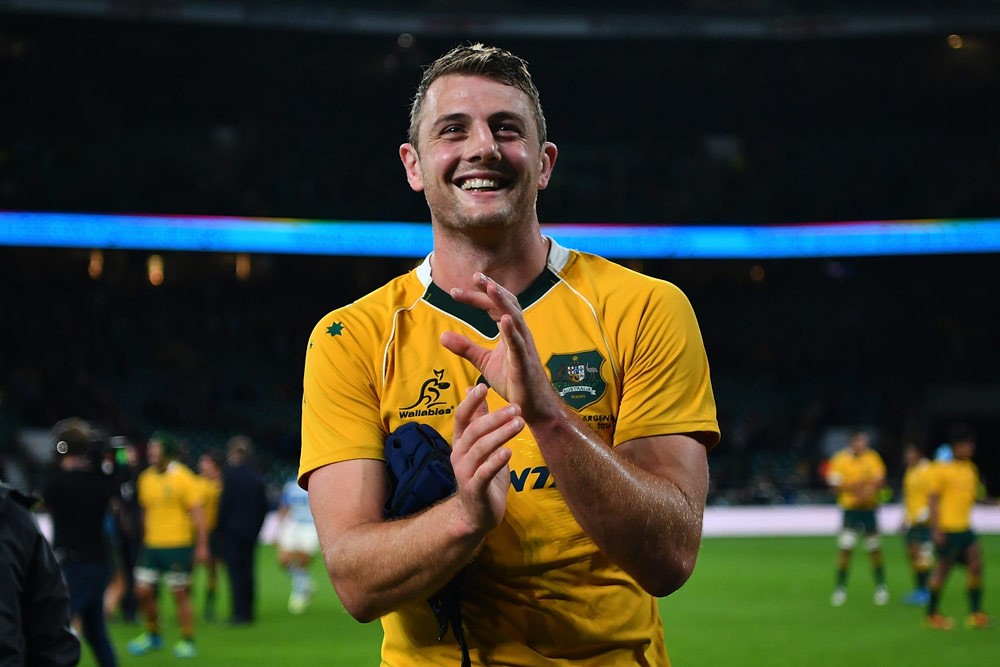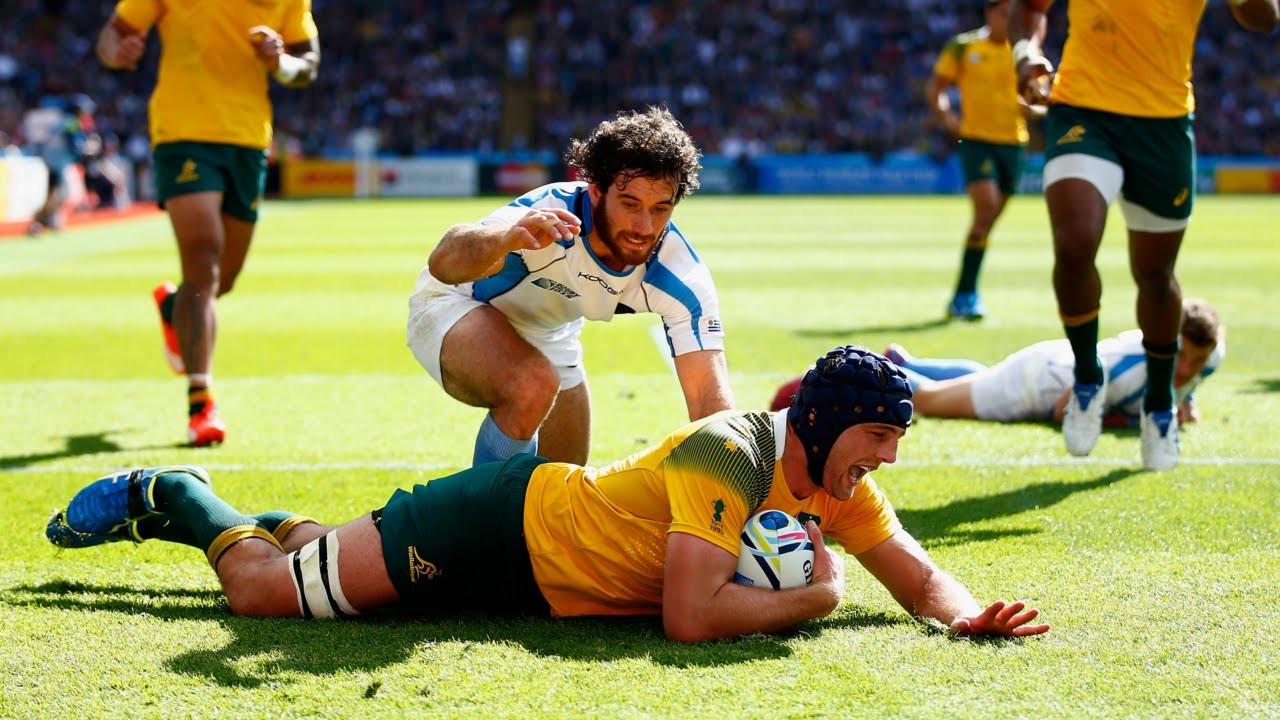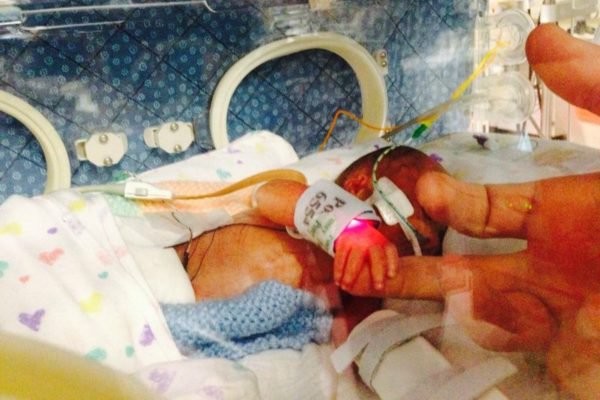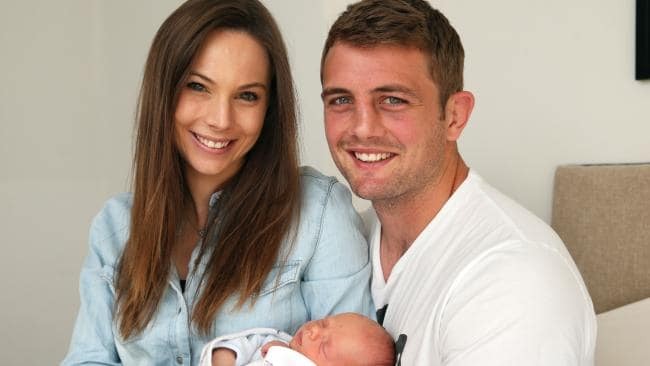
Warning: This article deals with with an account of infant loss.
Recently I had the opportunity to have a long chat with former Wallabies team captain and Borne ambassador, Dean Mumm.
We begin our call right on schedule with Dean starting by saying he is just looking for a quieter spot to chat. I assume this is because he is at home with his young family that includes 4 year old Alfie.
It’s been a long road to get to this point, one that has seen tragedy, heartbreak, and a small miracle. We begin by talking about the nature of resilience. I set the frame by telling him about my interest in this subject and my ongoing series of articles for a project – ‘The Resilience Within.’
A key indicator of resilience is the ability to ‘bounce back’ from difficult experiences. I have become enamoured with this subject, as I believe it is such an important skill to facilitate a better life.
I went on to discuss how, as young children, due to our lack of experience, we sometimes demonstrate an obvious lack of resilience by getting upset at the smallest things – most notably when we don’t get what we want! Importantly, we don’t remain this way. Dean agrees, (although adds that he knows a few adults who still behave this way!) and goes on to tell me his own example of this.
Only the night before, a deal had been struck between Dean and Alfie that he could watch an additional episode of Bob the Builder – but this meant Alfie would have to forgo his preferred bedtime bath for a shower. Despite the terms of the deal being agreed upon, when Bob put away his tools and it came time to shower – the reality of the new situation had dawned on Alfie – and the next 15 minutes had become what Dean described as ‘emotional’, while chuckling at the memory. This made me laugh too, but more so at the thought of 6’4 Dean Mumm, former captain of the Wallabies, in failing negotiations with a toddler.
PART ONE – CAPTAIN OF AUSTRALIA
Of course, we had to talk about rugby. It’s not just because I am a fan of rugby, but also there is something particularly revealing – you could say metaphorical – about this team sport.
Dean says, “There are so many things that you learn from playing rugby – about setbacks, defeat, about teamwork, about yourself.”

Dean captained the Australian Team against Uruguay the 2015 Rugby World Cup, with a resounding 65-3 win. He was also part of the team that then went on to battle, and ultimately end, England’s World Cup dreams shortly after. (I know – I watched the game safe and warm from my couch!)
“Winning teams have to have an incredible mindset. When you are losing on points, or a decision doesn’t go your way – you can’t let it affect you, you can’t let it show, you can’t let it affect the next play.”
If you watch the All Blacks (the most successful rugby team of all time), what’s clear is their presence in the moment. When the All Blacks are losing, the entire team remains calm, but focused. This includes the manager, the staff, and even the supporters to a certain extent.”
“When you’re playing for your country… the key is not to think about lost opportunities, but remain present in the game and focused on what you have to do now”. In the Wallabies, we try to focus on each set play as a new moment. In many ways, this is something that I continue to do in my life.”
And whilst it is easy to find examples of strength, resilience and iron mindset in world class teams such as The Wallabies and All Blacks, Dean recognises the value of defeat.
“We were expected to comprehensively beat Uruguay, and we did. But I have to hand it to them – the strength of character that it requires and builds when you are being smashed, only to get back up and keep trying, even when you know there is no chance of victory. This is courage, and this shows resilience.”
‘Losing’ is an essential part of building resilience.
However, this wasn’t an interview about simply winning.
Dean’s is a story about overcoming and growing from adversity, both on and off the field.
The thing that initially attracted me to Dean’s story was not just that he had achieved so much, or even that he had endured so much, but the humble nature with which he holds and conducts himself. Despite fulfilling a dream held by so many, Dean is a down-to-earth, friendly and unassuming guy.
As such, I didn’t realise who Dean was when he first came to my stretch and meditation class that I was teaching as part of a program for Transition Hub in Sydney . I figured he was just a giant bloke in good shape who could definitely do with stretching a little more regularly!
Over the week, I began to learn a little more about his passions, which (aside from beating the English) is helping others by sharing his story – his story off the field.
And whilst I couldn’t imagine running into a pack of Maori warriors hell bent to stop me – nothing compares to the battle Dean and his family have endured.
PART 2: FAMILY
Dean’s wife Sarah first fell pregnant when they had moved to the UK where Dean played for the Exeter Chiefs (whom he soon became the captain of), they had been married for 5 months. This was a joyous time, and everything appeared fine, until the 21st week.
Dean explains that Sarah had called him saying that she was experiencing severe stomach cramps, and had been rushed to hospital. She said she feared that she might lose Sophie, their first baby. Dean describes being in training at the time, receiving the call and going into shock.
Sophie did not survive the premature birth. Dean described this as “difficult beyond words”, and one of the darkest times of their lives. The devastating and unexpected loss was exacerbated by being far from home – without the support of family and close friends.
Sarah was diagnosed with a condition where the cervix can dilate too early, causing premature labour.
Six months later, Sarah fell pregnant again. This time, Sarah was monitored closely by obstetricians. Dean describes the battle they had to control their anxiety levels, “Whilst you want to feel happy and excited – you actually keep fearing the worst”.
Although relieved that the 21 week mark came and went, at 28 weeks Sarah was once again taken to hospital. Despite doctors’ efforts to prevent early labour again, Henry was born and immediately placed into neonatal intensive care. He survived for ten days against all the odds, having contracted an infection. “With no immunity”, Dean tells me, “he just didn’t stand a chance.”

Dean reveals that first time he held his son in his hands was to hold him whilst he died, and despite the incomparable sadness of this, he describes it as beautiful.
“There was something special about being able to hold Henry, even for a short time, even in such heartbreaking circumstances.”
Despite questioning whether they could survive losing another member of their family, Dean says this loss brought him and Sarah even closer together.
“That’s not to say that we’ve not both had dark moments wondering if it was ever going to happen for us – and whether Sarah could physically go through it again, but we persevered.”
At Henry’s funeral, the entire Exeter team attended in support.
Not long after, Sarah fell pregnant again. This time, they did not allow themselves to get excited. Dean describes anxiousness filling up “like a bucket” that you just had to find ways to empty. Be it going for long walks, talking about it, talking about anything.
Pregnancy lasts for about 40 weeks. A pre-term or premature baby is delivered before 37 weeks. At 36 weeks into this pregnancy, Sarah’s waters broke – and Alfie was born by C-Section.
Alfie was born with wet lungs and immediately placed into special care, but Alfie got better, and after 6 days, Sarah and Dean got to take Alfie home, where he progressed from strength to strength.

A few days after Alfie’s birth, Dean captained Australia to an overwhelming win over Uruguay. He calls this the most ‘magical week of his life’.
Two years later, Sarah was pregnant again – this time with identical twins, Grace and Ella.
This pregnancy came with its own unique set of complications, and at 20 weeks, despite every effort to save them, Grace was still born and her sister Ella survived for only 20 mins.
It’s hard to put into words the magnitude of the journey that Dean and Sarah have been through. As we spoke, my admiration for Dean (and Sarah – whom I have never met) just kept growing. I was becoming a little lost for words.
How do you ask someone what they learnt from such tragedies? To me it is almost beyond imagination. Not having children, I know nothing of the pain of losing a child. So instead of asking, I decided to share a little about my story.
In the same year that Dean and Sarah lost Sophie, I received a call I wish I never had. My brother Mario had been killed in an accident. I will never forget that moment. In my life there are two chapters – life before Mario died – and life after. I also saw what it did to my parents, and for many years I felt that any happiness I had would be forever tainted with sadness.
I explained, that to me, there are no silver linings to events like this. Whilst we can grow and ‘bounce back’ as Dean himself had also said, I feel strongly that it is not as simple as ‘looking on the bright side’. These are not the right words.
But in some ways, I did ‘grow’. I now have a deeper understanding of the pain of others. When I see people’s lives come crashing down around them, I can empathise with their despair. I also know that when you lose someone, it’s not just the loss that you endure, but you must helplessly witness the effect it has on those around you.
My experiences also helped me acquire a greater perspective, and when I am hurt or disappointed by life, I know I have had worse, and I made it through. I also truly understand the value of reaching out to those in pain, even if it’s only to say ‘I’m here’. I know, because it meant the world to me when people did so.
So I asked Dean, on reflection now time has passed, – what has he learnt from all that has happened? The following is unedited.
“Mate, terrible things will happen – and you can’t control this. And whilst we never truly get over these things, you can’t let these things define you. It either defines you, or you choose to define it. Ultimately – this is your only choice.”
“It helps to share your story, it benefits others, it benefits you. Aside from this, it makes you truly grateful. When I hold Alfie’s hand, I am truly grateful.”
“It’s false to think you will be the same as before, you may long to be – but you’re not – and nor would you want to be – there is no value in looking back. You are who you are and you are defined by your experiences and your memories. You just have to accept that you have changed and your experiences have made you that way – and that’s bloody hard to do but it’s a really important step. The new you can be a better you – its a huge part of the battle.”
PART 3 BOUNCING BACK TO THE NORTH POLE
During Sarah’s pregnancy with Alfie, they were aided by Professor Mark Johnson, founder of the Borne Foundation. The debt of gratitude Dean feels for Mark is clear: ‘We will owe him for the rest of our lives.”
It would seem that Dean is a man who pays his debts. In order to help raise funds for the continuing research undertaken by the Borne Foundation, Dean joined a trek to the North Pole. Less people have been to the North Pole than have reached the summit of Mount Everest.
“What terrified me wasn’t the cold – it was spending 6 hours a day in your own head with just your thoughts as company.” Though he was part of a team, “You walk spread out because if there’s an ice crack, there’s no point in all 8 of you going down!”
In fact, Dean says “It was the perfect place to be mindful, and allowed ample time for reflection – even today I can take myself back there and it’s quite calming.”
This reminds me of a recurring theme in my ongoing research and interviews – the power of mindfulness, and its role in peak performance, its ability to help re-frame events, to make better decisions, and to heal.
And this is just the beginning. In March 2020, Dean is hoping to attempt a crossing of Costa Rica – a trek of 260km. I have no doubt that he will accomplish this.
Before we finished, I had to ask – who won the battle of the shower between Alfie and Dad?
“I did,” Dean laughs.
Sounds about right.

